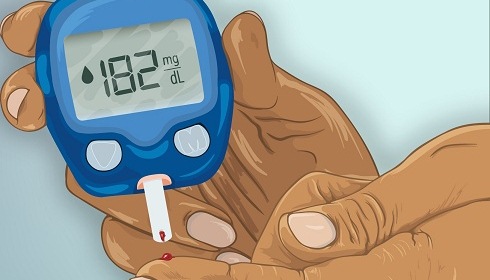
Early puberty in girls are additional risk factors of diabetes: Experts
Gestational diabetes history and early puberty in girls are additional risk factors. These demarcations often have tell-tale symptoms before manifesting as diabetes in individuals, experts said on occasion of World Diabetes Day.
They added that ethnic and racial minorities, lower socioeconomic backgrounds, and exposure to urban environments make for higher susceptibility rates. These demarcations often have tell-tale symptoms before manifesting as diabetes in individuals.
The doctors of Amrita Hospital, Faridabad stressed that there has been a significant surge in type two diabetes cases among younger populations, both globally and particularly in India, in the past decade.
They pointed out that this rise is attributed to shifting lifestyles, dietary patterns, genetic predispositions, urbanization, and sedentary behaviors.
Notably, India has witnessed a troubling increase in Type 2 diabetes prevalence among young adults, as studies indicate a steady surge in cases among those aged 20-40.
This concerning trend poses substantial long-term health challenges involving other functions of the body like the cardiovascular system, kidneys, and more.
Dr. Mohit Sharma, Senior Consultant, Internal Medicine, Department of Endocrinology, Amrita Hospital, Faridabad, said, “In young individuals, potential signs of Type 2 diabetes include frequent urination, increased thirst, excessive hunger, unexplained weight loss, chronic fatigue, blurred vision, slow wound healing, and recurring infections. These symptoms may indicate elevated blood sugar levels and should prompt medical evaluation. Early detection and management are vital to prevent complications associated with diabetes. Many times, there can be no symptoms of high blood sugar and it can silently damage organs for some months or years before symptoms appear. So, it is important to also look for diabetes actively with a simple blood test when a person sees patterns such as obesity, unhealthy diet and lifestyle, and family history.”
In regard to the long-term impacts of Type 2 diabetes, Dr. Vivek Chaturvedi, HoD, Adult Cardiology, Amrita Hospital, Faridabad said, “Type 2 diabetes significantly impacts the cardiovascular system, increasing the risk of various complications. Common cardiovascular issues associated with diabetes include heart attacks, angina, sudden cardiac death, heart failure, strokes, and peripheral arterial disease. These complications are primarily driven by the promotion of atherosclerosis, which leads to the formation and progression of blockages in blood vessels throughout the body. Diabetes not only raises the risk of blockage formation but also exacerbates other factors that contribute to it. Moreover, diabetes directly affects the heart muscle, potentially causing cardiomyopathy and heart failure.”
“Diabetes can also have an adverse effect on an individual’s kidneys. Diabetic kidney disease, affecting 40% of those with diabetes, usually appears after 10-15 years of uncontrolled diabetes. It begins with swelling in the face and legs due to fluid retention and detectable urinary protein (albuminuria). If left unmanaged, it progresses to kidney failure, marked by high creatinine levels. Early detection is vital. High cholesterol and diabetes damage kidney blood vessels, causing blockages and uncontrollable blood pressure. Changes in sugar levels also lead to recurring urinary tract infections. Management includes new medicines that have shown promise in halting progression over the last five years, offering hope for those with diabetic kidney disease,” said Dr. Urmila Anandh, HoD, Nephrology, Amrita Hospital, Faridabad.